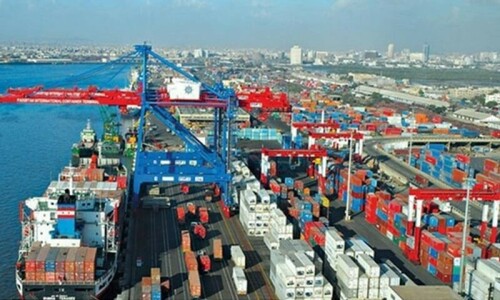Guyana is the newest kid on the global energy bloc. The country’s growing oil assets, regarded by some as the find of the decade, are increasingly under the spotlight, giving rise to a new tug of war. As is always the case, attempts to grab the assets are on, both at the geopolitical and corporate levels.
Guyana’s offshore oil sector is booming, with over 11 billion barrels of oil equivalent resources discovered so far. Production is expected to reach roughly 620,000 barrels per day (bpd) once its Payara field reaches maximum capacity, and it could exceed 1.2 million bpd by 2028.
So far, 30 discoveries have been made, and many more are expected. With production anticipated to begin in Yellowtail in 2025 and Uaru in 2026, the country’s output could touch the 8m barrels equivalent per day, according to recent Standard & Poor’s Global estimates. However, the emerging resources are not without a curse.
Neighbouring Venezuela, boasting a large army with 337,000 personnel, is asserting ownership of the resource-rich Essequibo region of Guyana. Once supermajor Exxon made a swathe of high-quality oil discoveries in the waters off the Essequibo region, Venezuelan President Nicolas Maduro’s sabre-rattling intensified.
Energy-deficient Pakistan could learn from Guyana in successfully exploiting its energy assets via active global player participation
Venezuela is now claiming its rights to a 61,000 square mile area of Guyana, comprising roughly two-thirds of the sovereign territory. A heated debate between the two countries has begun. Caracas is accusing Georgetown of awarding Exxon illegal drilling licenses. It says Guyana has no right to award such licenses. Venezuela has also objected to Exxon’s drilling campaign, claiming the supermajor was engaging in corrupt conduct with key opposition figure, Maria Corina Machado, to move ahead on the project.
Matthew Smith reported in his piece in Oilprice.com, “Recent evidence suggests heightened military activity along Guyana’s border, raising fears of a potential invasion. By the end of 2023, there were fears Venezuela would use its military to annex the contested region.” To many, this is reminiscent of the invasion of Kuwait by the forces of Saddam Hussain in 1990.
Later, however, the presidents of Venezuela and Guyana agreed to resolve the dispute peacefully. Yet despite the agreement, “evidence of heightened Venezuelan military activity along Guyana’s border has [re]emerged, sparking fears Caracas is preparing to seize the [resource-rich] Essequibo by force.”
In the meantime, a corporate battle is also ongoing. Currently, Exxon controls all production in Guyana, holding a 45 per cent share in a consortium that includes the Hess Corporation and the China National Offshore Oil Corporation (CNOOC) as minority partners. Last October, Chevron Corp agreed to acquire Hess Corp for $53bn.
Analysts point out that Chevron’s bid to purchase Hess in October was primarily aimed at securing its 30pc stake in the Stabroek block off the coast of Guyana, currently one of the world’s fastest-growing oil developments and the biggest crude discovery in a decade.
Exxon is now claiming it has a right to first refusal of any sale of the Stabroek block off the coast of Guyana, containing at least 11bn barrels of oil. Late in February, ExxonMobil said it may pre-empt Chevron Corp’s acquisition of a 30pc stake in the giant Guyanese oil block. Many say the possible move by Exxon to pre-empt the Chevron-Hess deal could result in the breakup of Chevron’s $53bn deal to buy into the field.
Chevron stands adamant there’s “no possible scenario” where Exxon or CNOOC could buy the stake, adding that it remains fully committed to the Hess deal. Exxon and CNOOC’s right of first refusal is “not applicable” to its merger with Hess, Chevron said in an emailed statement sent to the media. “As described in the S-4, there is no possible scenario in which Exxon or CNOOC could acquire Hess’ interest in Guyana as a result of the Chevron-Hess transaction.”
However, Exxon is insisting that it has a duty to its shareholders to explore the right of first refusal over the change of ownership of the Hess stake.
In recent months, oil majors have struck a flurry of mega-deals to secure stakes in proven reserves without building new projects that would increase global supplies. Capitalising upon the sentiment, Guyana has been trying to attract more large oil producers to dilute Exxon’s dominance of the country’s energy output.
It recently held an offshore block auction that drew bids from TotalEnergies, Petronas and Qatar Energy. A battle royale between the oil giants is thus underway in Guyana.
The ongoing corporate dispute over Guyana’s Stabroek Block and the possibility of invasion of Guyana by Venezuela underscores “how important the emerging basin is to global crude markets”, Bloomberg underlined in a piece.
The evolving battleground of Guyana once again underlines oil and geopolitics are virtually inseparable.
For energy-deficient countries like Pakistan, Guyana presents a case study. The country has been successful in exploiting its energy assets through the active participation of global oil majors. Such projects require considerable investments and technological knowhow — oil majors’ posses both.
However, for oil majors to get involved in any such projects, political and economic stability in host countries remains a must. Consistency in policies is required and on a long-term basis.
Pakistan is not meeting these prerequisites. Despite having the potential, it has been unable to exploit and grow its domestic energy asset base in recent decades. To some, it has been a lost decade in many senses.
Oil majors and multinationals are slowly opting out of Pakistan. To achieve a semblance of success in the energy sector, we need to reverse this trend. Pakistan, and especially the Ministry of Petroleum, has a lot to relearn.
Published in Dawn, The Business and Finance Weekly, March 18th, 2024















































Dear visitor, the comments section is undergoing an overhaul and will return soon.